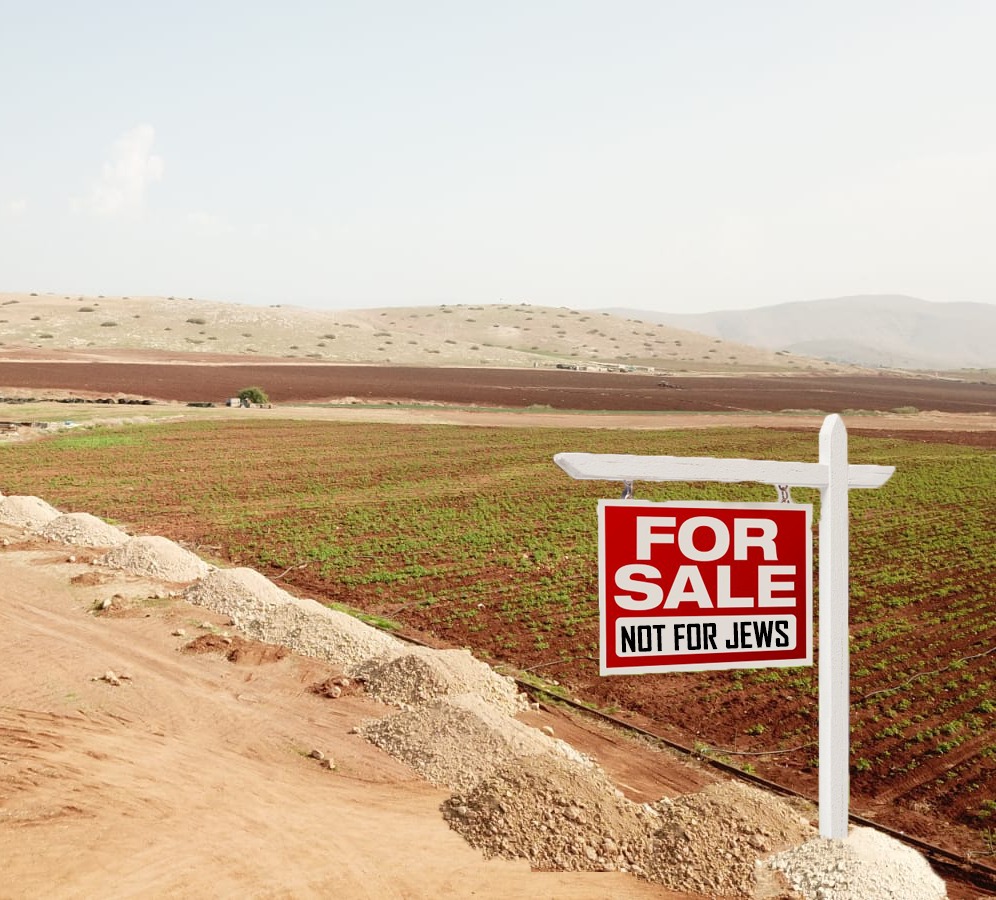
If you were asked to name a country where there is still a law in force that prohibits Jews from buying property, you might be tempted to make an educated guess based on the dark history of Europe and the long tradition of expulsion and persecution that was facilitated by anti-Jewish legislation over centuries. Places like Germany, England and France might spring to mind; Spain and Portugal might be in the running as well.
You probably wouldn’t guess that today, in the year 2021, a law is enforced by the State of Israel that prohibits Jews from purchasing privately owned property — but that is the sad and shocking truth. Law 40, enacted in 1953 by the Jordanians during their illegal annexation of Judea and Samaria, prohibits the purchase of privately owned land by non-Arabs, as well as the sale of privately owned land to non-Arabs (in other words, Jews). Not only is Law 40 still “on the books,” but it is actively enforced to this very day by the State of Israel’s legislative, judicial and security branches.
In a very real and undeniable sense, this legislation is, quite simply, racist. It is blatantly anti-Semitic. It is regressive, and an affront to the concepts of personal liberty, equality and property rights upon which democracy is based. Laws of this kind would not be allowed to stand anywhere in the civilized world, and it is nothing short of outrageous that the Jewish state has allowed this discriminatory and regressive legislation to remain in force in a judicial system that champions individual rights.
How, then, have Jews purchased property over the past 53 years? In 1971, the Military Commander for Judea and Samaria issued a “work-around” directive, by changing the Jordanian law that pertains to corporate ownership, while leaving Law 40 untouched. Thus, companies registered in Judea and Samaria — even if they are owned by Jews — are now permitted to purchase property in Judea and Samaria. Rather than strike down Law 40, the Israeli government has left it in place and designed a method of circumventing it.
Why, you may well ask? Why should this be necessary? Simply put, the State of Israel has spent decades avoiding any action that might be construed as an act of sovereignty in Judea and Samaria. It has bent itself into contorted legal positions in order to avoid fulfilling its most basic responsibilities to Israeli citizens and to the security of the State of Israel. It has procrastinated to the point of absurdity, creating a vacuum of governance and a black hole of law and order that continues to turn normal life — for Jewish and Palestinian residents of “Area C” alike — into a tangled bureaucratic nightmare.
The legal departments of both Israel’s Ministry of Defense and Civil Administration have recommended additional methods of circumventing or even amending Law 40. The Regavim Movement, on the other hand, has petitioned the High Court of Justice to strike down this racist legislation altogether, and to expunge this anti-Semitic vestige from the Israeli legal code. Striking down Law 40 is a statement of Israel’s commitment to equal and universal rights under the law — a statement that is long overdue.
Related Posts
A New Dawn in the Battle for Judea and Samaria
Meir Deutsch, Director General for The Regavim Movement Published in Israel Hayom, December 18th, 2024 For the first time in a decade, there’s been an unprecedented decline in illegal Palestinian construction in Area C, coupled with a significant increase in enforcement actions by the Civil Administration. This isn’t just a statistic; it’s a beacon of […]
Ground-breaking verdict brings hope for justice in the Negev
Beer Sheva District Court instructs the government to remove the squatters of Al Zarnog: “The State cannot condone the violation of individual proprietary rights.” A decisively-worded verdict was recently handed down by Judge Chani Slotki of the Be’er Sheva District Court, in a petition demanding that enforcement procedures be taken against hundreds of Bedouin squatters […]








